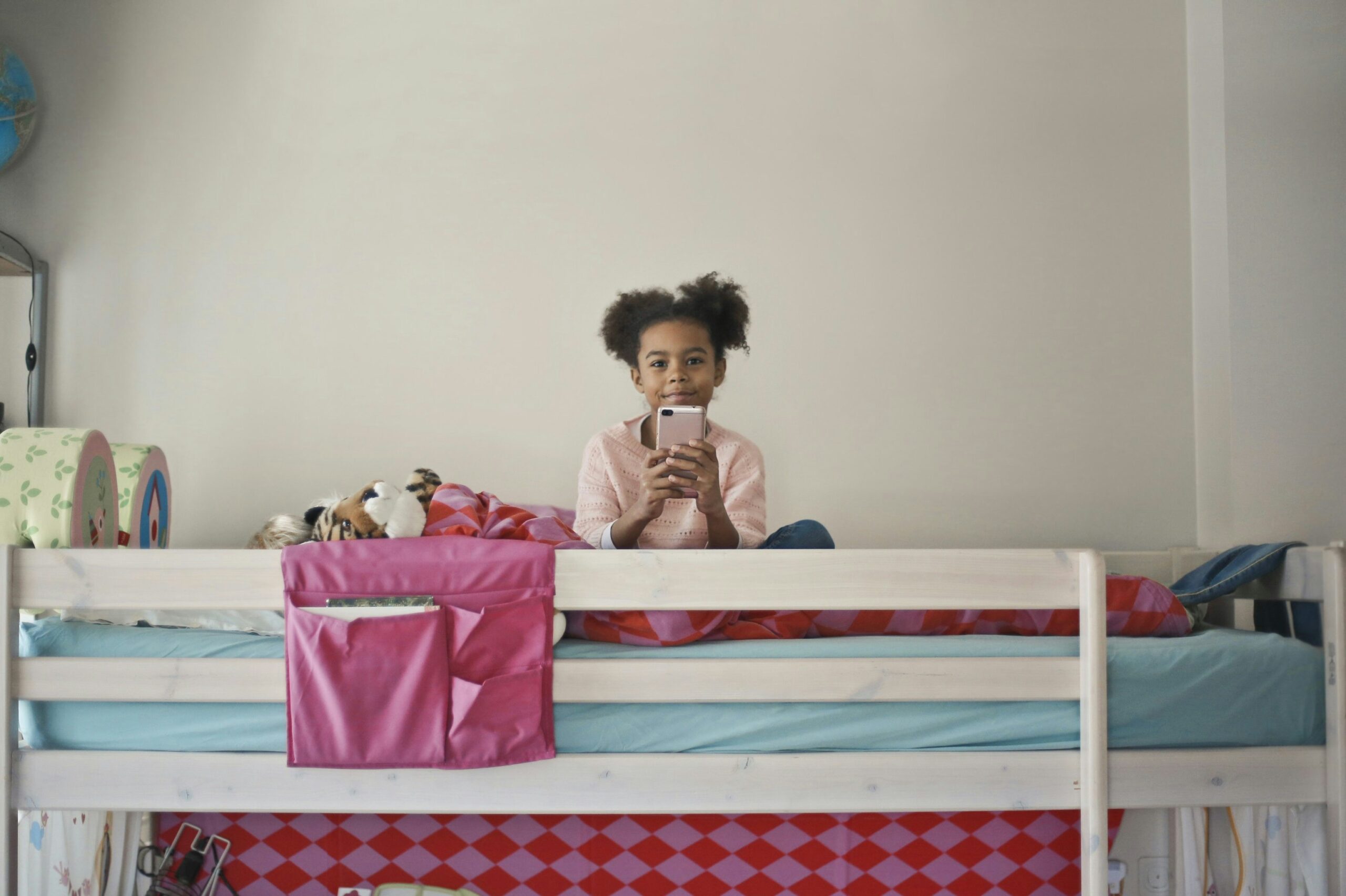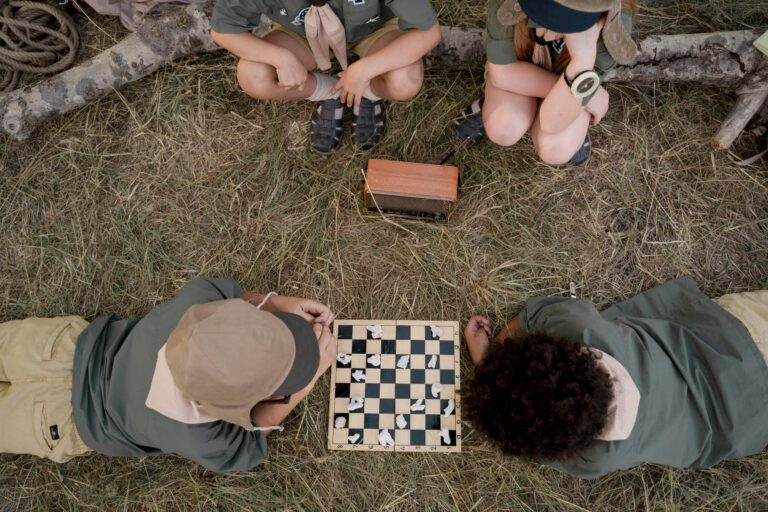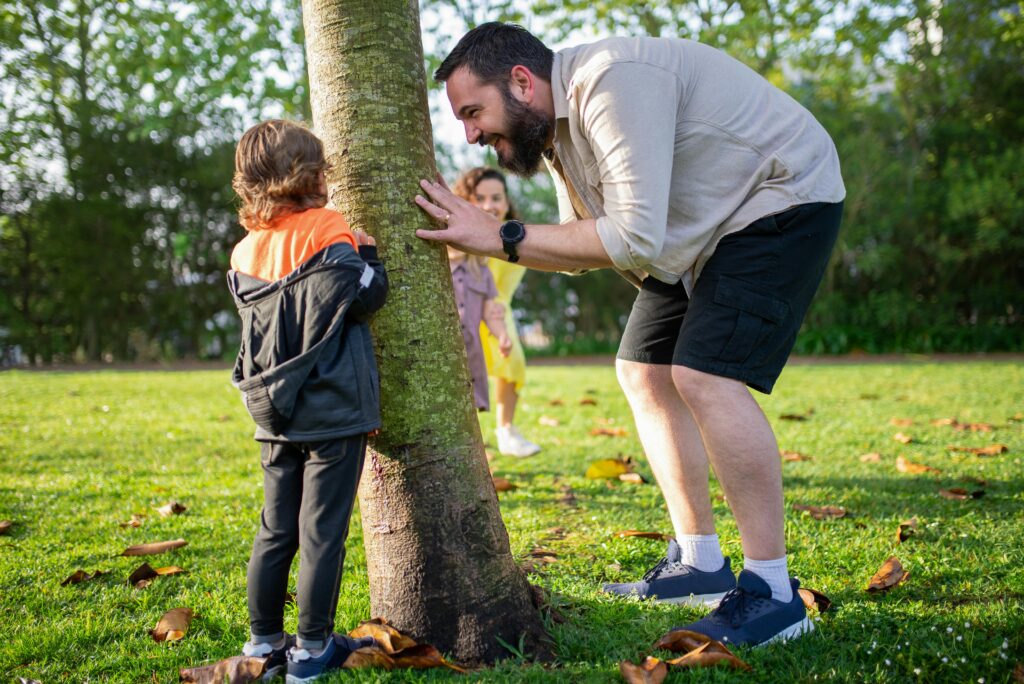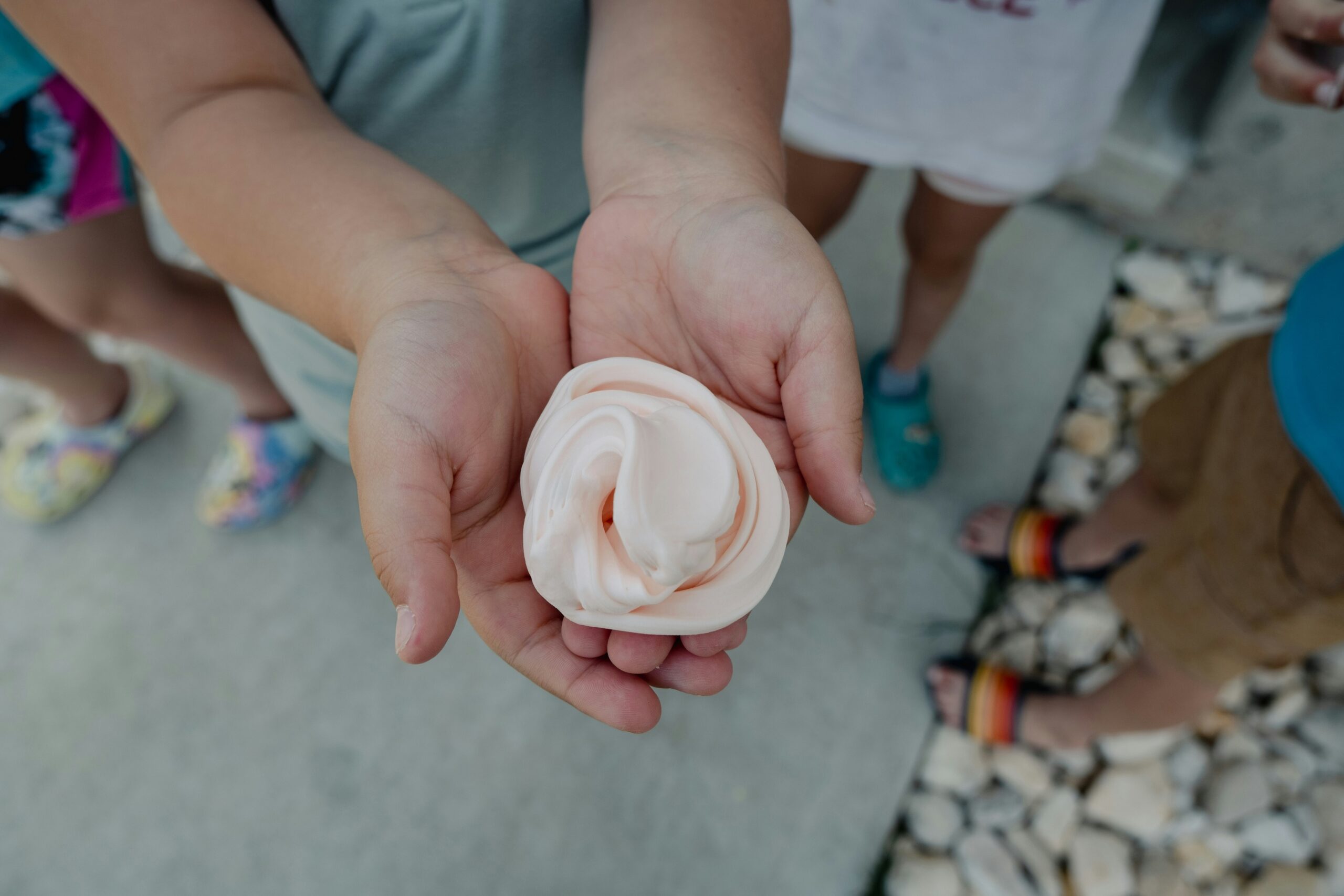
Educational Tech for Parents: Empowering Your Child’s Learning Journey
Edu Tech Thank you for reading this post, don’t forget to subscribe! In an era where technology is integral to education, parents play a crucial



Playtime represents far more than a simple break from daily routines—it stands as one of the most powerful tools in effective parenting and child development. Research in developmental psychology consistently demonstrates that play is fundamentally how children learn, grow, and develop the essential skills they need to thrive throughout life. Understanding and harnessing the profound impact of play can transform your approach to parenting, creating opportunities for meaningful connection while supporting your child’s cognitive, emotional, social, and physical development.
Thank you for reading this post, don't forget to subscribe!
This comprehensive guide explores the critical role of play in child development stages, providing evidence-based parenting advice and practical parenting tips that will help you create enriching play experiences tailored to your child’s unique developmental needs and interests.
Modern child development research reveals that play is not merely entertainment—it’s the primary mechanism through which children develop crucial life skills. From birth through adolescence, different types of play support specific aspects of development, making it an indispensable component of effective parenting strategies.
When children engage in play, their brains are actively forming neural connections that support everything from problem-solving and creativity to emotional regulation and social competence. This natural learning process occurs most effectively when parents understand how to facilitate and participate in play experiences that align with their child’s developmental stage and individual interests.
Infancy (0-12 months): Simple sensory play activities like peek-a-boo, gentle tickling, and exploring different textures support brain development, attachment formation, and early cognitive skills. These early play interactions lay the foundation for secure parent-child relationships and future learning.
Toddlerhood (1-3 years): Exploratory play, simple pretend scenarios, and physical movement activities support language development, motor skills, and beginning social awareness. This stage requires careful balance between providing safe exploration opportunities and maintaining necessary boundaries.
Preschool Years (3-5 years): Complex imaginative play, cooperative games, and creative activities support emotional intelligence, social skills, and pre-academic learning. Children at this stage benefit from both structured and unstructured play experiences.
School Age (6-12 years): Rule-based games, team sports, and skill-building activities support cognitive development, peer relationships, and self-confidence. Play becomes increasingly social and goal-oriented during these crucial developmental years.
Adolescence (13+ years): Creative pursuits, competitive activities, and social play support identity development, independence, and emotional regulation. Understanding how to maintain playful connections with teenagers requires adapting parenting approaches while respecting their growing autonomy.
Physical play serves as a cornerstone of healthy child development, supporting not only physical fitness but also cognitive function, emotional regulation, and social skills development.
Gross Motor Development Activities:
Fine Motor Enhancement Through Play: Incorporate activities like building with blocks, arts and crafts projects, cooking together, and playing musical instruments to support hand-eye coordination, dexterity, and concentration skills that are essential for academic success.
Health and Wellness Benefits: Regular physical play combats childhood obesity, supports healthy sleep patterns, and builds lifelong habits of physical activity. Parents who prioritize active play are modeling healthy lifestyle choices while creating opportunities for family bonding and outdoor exploration.

Imaginative play, often called pretend play, represents one of the most powerful tools for supporting children’s emotional and social development while nurturing creativity and problem-solving abilities.
Age-Appropriate Imaginative Play Ideas:
Supporting Imaginative Play: Create dedicated spaces for imaginative play with open-ended materials like fabric scraps, cardboard boxes, and simple props. Avoid over-structuring imaginative play—instead, follow your child’s lead and provide supportive prompts when needed.
Emotional Development Through Play: Imaginative play provides children with safe opportunities to process emotions, work through fears, and practice social scenarios. Parents can observe their children’s play to gain insights into their emotional world and provide appropriate support when needed.
Structured play activities teach children essential life skills including following rules, working collaboratively, handling competition, and developing persistence in the face of challenges.
Benefits of Organized Activities:
Choosing Appropriate Structured Activities: Consider your child’s temperament, interests, and developmental stage when selecting organized activities. Some children thrive in competitive team sports, while others prefer individual pursuits like martial arts, music lessons, or art classes.
Balancing Structure and Freedom: While structured play offers valuable benefits, children also need ample time for free play and self-directed activities. Aim for a balance that includes both organized activities and unstructured exploration time.

Creative play encompasses any activity that allows children to express themselves artistically while developing problem-solving skills, emotional intelligence, and innovative thinking abilities.
Multi-Modal Creative Opportunities:
Creating a Creative Environment: Establish dedicated creative spaces with easy access to art supplies, musical instruments, and building materials. Emphasize the creative process over the end product, praising effort and innovation rather than focusing solely on results.
Supporting Different Creative Styles: Recognize that children express creativity differently—some are visual learners who prefer art projects, while others are kinesthetic learners who prefer building and construction activities. Provide diverse creative opportunities to support different learning styles and interests.
Effective parenting through play requires understanding when to actively participate and when to step back and observe. Both approaches serve important developmental purposes and strengthen parent-child relationships in different ways.
Benefits of Active Participation:
Value of Supportive Observation:
Physical Space Considerations: Design play spaces that are safe, accessible, and inspiring. This doesn’t require expensive equipment—often simple materials like cardboard boxes, blankets for fort-building, and natural materials from outdoors provide the most engaging play opportunities.
Age-Appropriate Toy Selection: Choose toys and materials that support your child’s current developmental stage while offering opportunities for growth. Open-ended toys like blocks, art supplies, and dress-up clothes typically provide more long-term engagement than single-purpose electronic toys.
Rotating and Refreshing Play Materials: Regularly rotate toys and activities to maintain novelty and interest. This approach also helps prevent overwhelming children with too many choices while maximizing the play value of your existing materials.
Establishing Healthy Media Boundaries: Create clear guidelines around screen time that prioritize active play, outdoor activities, and face-to-face social interaction. Use technology as a tool to enhance rather than replace real-world play experiences.
Quality Over Quantity in Digital Play: When children do engage with digital media, choose high-quality, educational content that encourages creativity and learning. Look for apps and games that require active participation rather than passive consumption.
Family Media Plans: Develop family media plans that include screen-free times and zones, ensuring that meals, family time, and bedtime remain focused on personal connection and offline activities.

Organizing Successful Playdates: Plan structured and unstructured activities that allow children to practice social skills in a supportive environment. Start with shorter playdates and gradually increase duration as children develop better social stamina.
Teaching Social Problem-Solving: Use conflicts and disagreements during play as teaching opportunities. Guide children through problem-solving processes rather than immediately stepping in to resolve disputes, helping them develop crucial conflict resolution skills.
Supporting Shy or Introverted Children: Some children need additional support to engage in social play. Provide opportunities for one-on-one interactions before group activities, and respect your child’s social energy levels while gently encouraging social skill development.
Involving Extended Family: Create opportunities for children to play with grandparents, cousins, and other family members. These intergenerational play experiences provide unique learning opportunities and strengthen family bonds.
Community Engagement: Participate in community play groups, library programs, and neighborhood activities that provide diverse social experiences and help children develop a sense of community belonging.
Mathematics Through Play: Incorporate counting, sorting, measuring, and pattern recognition into everyday play activities. Cooking, building, and board games naturally integrate mathematical concepts in engaging, practical ways.
Language Development Activities: Storytelling, rhyming games, and dramatic play support vocabulary development, communication skills, and literacy preparation. Reading together and creating stories collaboratively strengthens both language skills and parent-child bonds.
Science Exploration: Nature play, simple experiments, and sensory activities introduce scientific concepts like cause and effect, observation skills, and hypothesis testing in age-appropriate, hands-on ways.
Diverse Play Experiences: Introduce games, stories, and activities from different cultures to broaden your child’s worldview and develop cultural sensitivity. This approach supports empathy development and global citizenship skills.
Language Learning Through Play: Incorporate songs, games, and activities in different languages to support cognitive development and cultural appreciation, even if you’re not fluent in other languages yourself.
Setting Clear Expectations: Establish consistent rules and expectations for play behavior while maintaining flexibility for age-appropriate exploration and experimentation. Use positive reinforcement to encourage desired behaviors rather than focusing primarily on restrictions.
Dealing with Frustration and Meltdowns: Recognize that challenging emotions are a normal part of play and learning. Provide emotional support and teaching opportunities when children struggle with disappointment, sharing, or complex tasks.
Sibling Play Dynamics: Navigate sibling conflicts and competition by providing individual attention, teaching cooperative play skills, and creating opportunities for both shared and separate play experiences.
Supporting Highly Sensitive Children: Some children are easily overwhelmed by stimulation and benefit from quieter, more controlled play environments. Respect these individual differences while gradually expanding comfort zones.
Engaging Active and Energetic Children: High-energy children often need more physical play opportunities and may benefit from scheduled active play times to help them self-regulate throughout the day.
Encouraging Reserved or Cautious Children: Some children prefer observing before participating. Allow time for warming up to new activities while gently encouraging participation when children show readiness.
Building Support Networks: Connect with other families for reciprocal playdates and shared activities. This provides social opportunities for children while giving single parents much-needed community support.
Self-Care Through Play: Remember that taking care of yourself enables better parenting. Find ways to incorporate playful, enjoyable activities into your own routine to model healthy stress management and life balance.
Quality Over Quantity: Focus on meaningful, intentional play interactions rather than feeling pressure to provide constant entertainment. Even 15-20 minutes of focused, engaged play can be highly beneficial for child development and parent-child bonding.
Weekend and Evening Play Routines: Establish regular play routines that work with your family’s schedule, such as after-dinner dance parties, weekend nature walks, or bedtime storytelling traditions.
Individual Accommodation Strategies: Modify play activities to accommodate different abilities and learning styles while maintaining the core developmental benefits. Consult with occupational therapists, teachers, and other professionals for specialized guidance when needed.
Inclusive Play Opportunities: Seek out inclusive play environments and activities that welcome children of all abilities, supporting your child’s social development while building community connections.
The skills developed through play—creativity, problem-solving, collaboration, and communication—directly support future academic success and career readiness. Children who engage in rich play experiences develop the flexible thinking and social skills that are increasingly valued in modern workplaces.
Regular play experiences support emotional regulation, stress management, and resilience development. These skills provide a foundation for mental health and well-being that benefits children throughout their lives.
The positive interactions and shared experiences created through play strengthen family bonds and create lasting memories. These relationship foundations support children through challenges and transitions while building family traditions that can be passed to future generations.
Morning Play Routines: Start days with brief, energizing play activities that help children transition into their daily routines with positive energy and connection.
Transition Play: Use short play activities to help children move between different parts of their day, such as cleanup games or movement activities.
Evening Wind-Down Play: Incorporate calming play activities like puzzles, quiet storytelling, or gentle music into evening routines to support relaxation and family connection.
Creating Family Traditions: Develop special play activities associated with different seasons and holidays, creating anticipation and positive family memories while supporting cultural and seasonal awareness.
Outdoor Seasonal Activities: Adapt play activities to take advantage of different seasons—snow play in winter, water play in summer, leaf collecting in fall, and garden exploration in spring.

Understanding and prioritizing play in your parenting approach represents one of the most powerful investments you can make in your child’s development and your family’s well-being. Through thoughtful attention to play opportunities, you’re not just providing entertainment—you’re supporting your child’s cognitive development, emotional intelligence, social skills, and physical health while strengthening your parent-child relationship.
Key Takeaways for Effective Play-Based Parenting:
Remember: Every moment of play is an opportunity for growth, learning, and connection. Whether you’re building a blanket fort, chasing bubbles in the backyard, engaging in elaborate pretend scenarios, or simply playing peek-a-boo with your baby, you’re contributing to your child’s development in meaningful and lasting ways.
Action Steps for Implementation:
The investment you make in play today will pay dividends in your child’s development, your family’s happiness, and the lasting memories you create together. Embrace play as not just a parenting strategy, but as a pathway to joy, learning, and deep family connection that will benefit your entire family for years to come.

Edu Tech Thank you for reading this post, don’t forget to subscribe! In an era where technology is integral to education, parents play a crucial

Family life Thank you for reading this post, don’t forget to subscribe! We wrote earlier about sibling rivalry, but since it isn’t easy to solve

Play time Thank you for reading this post, don’t forget to subscribe! Sensory play is a fantastic way to engage your child’s senses and promote





—where every challenge is an opportunity, and every moment matters.
